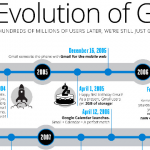 An anonymous reader writes “When cell phone unlocking became illegal last month, it set off a firestorm of debate over what rights people should have for phones they have legally purchased. But this is really just one facet of a much larger problem with property rights in general. ‘Silicon permeates and powers almost everything we own. This is a property rights issue, and current copyright law gets it backwards, turning regular people — like students, researchers, and small business owners — into criminals. Fortune 500 telecom manufacturer Avaya, for example, is known for suing service companies, accusing them of violating copyright for simply using a password to log in to their phone systems. That’s right: typing in a password is considered “reproducing copyrighted material.” Manufacturers have systematically used copyright in this manner over the past 20 years to limit our access to information. Technology has moved too fast for copyright laws to keep pace, so corporations have been exploiting the lag to create information monopolies at our expense and for their profit. After years of extensions and so-called improvements, copyright has turned Mickey Mouse into a monster who can never die.’ We need to win the fight for unlocking phones, and then keep pushing until we actually own the objects we own again.” Read more of this story at Slashdot.
An anonymous reader writes “When cell phone unlocking became illegal last month, it set off a firestorm of debate over what rights people should have for phones they have legally purchased. But this is really just one facet of a much larger problem with property rights in general. ‘Silicon permeates and powers almost everything we own. This is a property rights issue, and current copyright law gets it backwards, turning regular people — like students, researchers, and small business owners — into criminals. Fortune 500 telecom manufacturer Avaya, for example, is known for suing service companies, accusing them of violating copyright for simply using a password to log in to their phone systems. That’s right: typing in a password is considered “reproducing copyrighted material.” Manufacturers have systematically used copyright in this manner over the past 20 years to limit our access to information. Technology has moved too fast for copyright laws to keep pace, so corporations have been exploiting the lag to create information monopolies at our expense and for their profit. After years of extensions and so-called improvements, copyright has turned Mickey Mouse into a monster who can never die.’ We need to win the fight for unlocking phones, and then keep pushing until we actually own the objects we own again.” Read more of this story at Slashdot.
See more here:
We Should Be Allowed To Unlock Everything We Own

 If Google thinks any of its new Google Glass owners have been flogging them on eBay or loaning them their to friends it has the right to remotely deactivate the tech spectacles, according to the Ts & Cs in the contract this first wave of buyers have agreed to. More »
If Google thinks any of its new Google Glass owners have been flogging them on eBay or loaning them their to friends it has the right to remotely deactivate the tech spectacles, according to the Ts & Cs in the contract this first wave of buyers have agreed to. More » 


 Apple will supply the Pentagon with iOS devices as part of a new contract, a new report says. [Read more]
Apple will supply the Pentagon with iOS devices as part of a new contract, a new report says. [Read more] 
